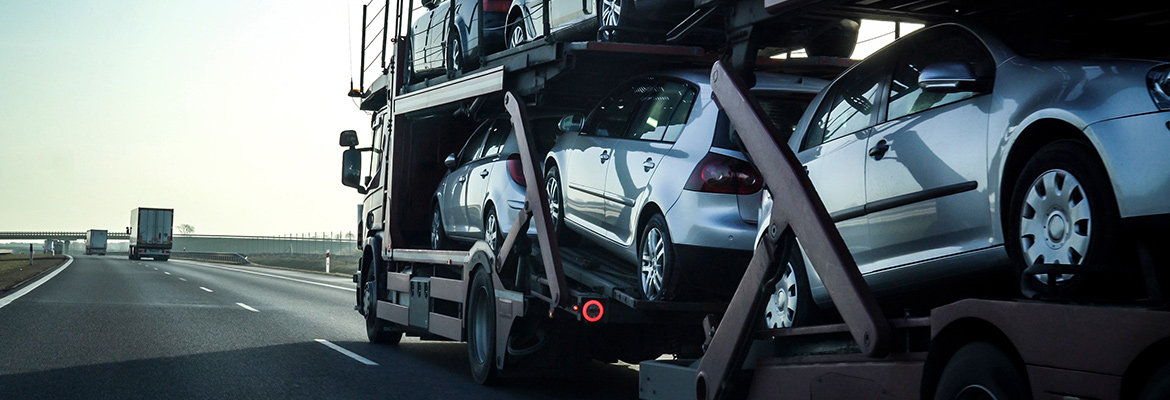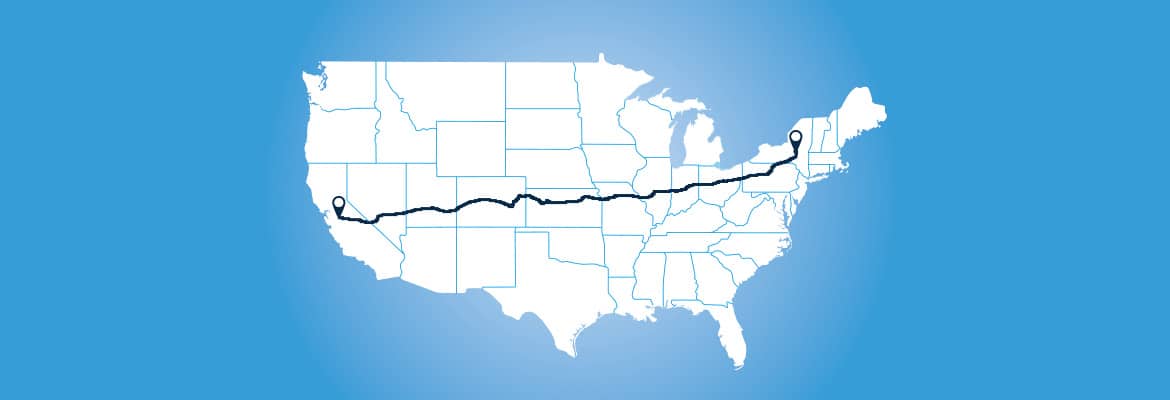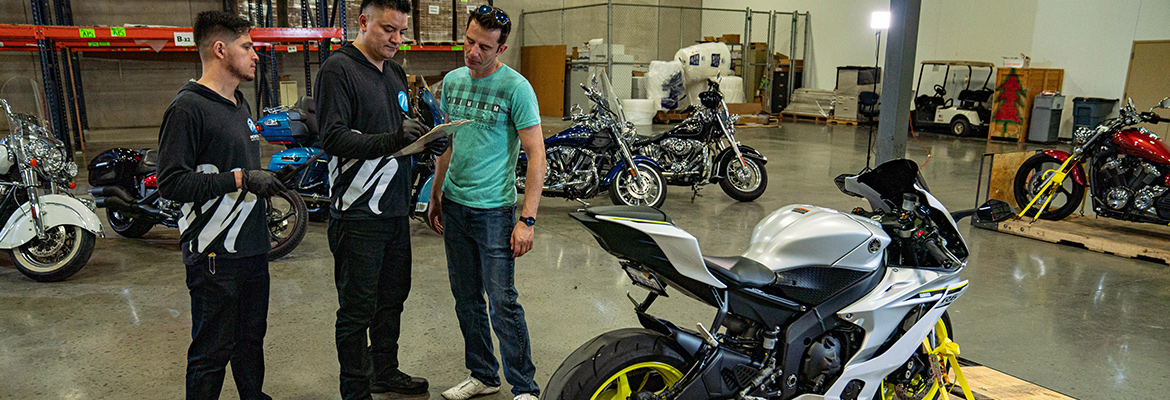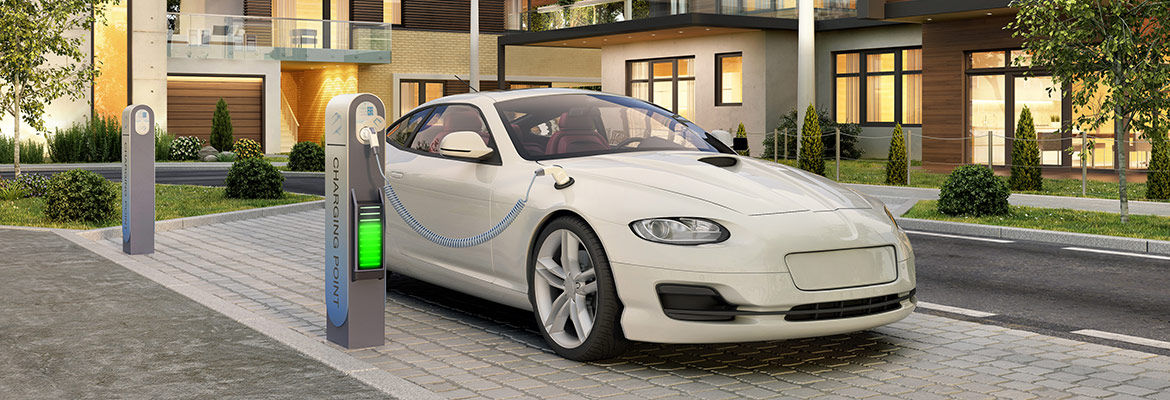Author(s)
admin
Even if you’re planning on shipping a car or truck, you probably haven’t thought much about the different types of trailer and truck options there are for transporting vehicles. Auto transport is one of those services that remains largely invisible until you actually need it. Of course, we are here to help you and will choose the right car shipping trailer for you but still, we would like to explain to you what the differences are.
That said, we think all the different truck and car shipping options out there are pretty interesting, and so we thought it would be fun to put together a post that explains the difference between single-level multi-car carriers, single vehicle hotshot trailers, multi-level multi-car carrier trailers, and the other types of car transporters used by the shipping industry. At the end of this post, we’ll also talk a bit about which option or options might be best for you.
First, there are open carriers and enclosed carriers
If you’ve already been in touch with an auto transport management company like Montway, then you may be aware that you’ll usually be able to request one of two types of trucks when you’re shipping a car—auto transport and enclosed auto transport. These options refer to the type of shipping truck that will move your vehicle. Auto transport is what most of us picture when we think ‘car carrier’—an open trailer—while enclosed auto transport is more like a shipping container on wheels that keeps the cars and trucks inside, completely shielded from the elements. Both are typically pulled by big rigs.
Let’s dig deeper into both options.
Shipping a car with open auto transport
An open car carrier trailer is any trailer without sides. There are different types of open car carriers, but what they all have in common is that the vehicles they transport are exposed to the environment around them. What’s great is that shipping a car by an open car carrier trailer is not only safe but also effective, and a common practice in the auto transport industry.
Open car transport is the standard shipping method in our industry — in fact, most cars and trucks are hauled on open carriers that can carry anything from one to ten vehicles. The truckers who haul cars on open carriers are well-trained and know just how to pack and strap vehicles down to keep them extra safe while on the road.
Shipping a car with enclosed car shipping
Fewer cars are shipped in closed car carriers, which are trailers that have sides and a top so the vehicles inside are completely cut off from the elements and road. Most of the time, the vehicle owners who choose this method of shipping a car do so because their vehicles are particularly valuable. Classic cars, antique cars, rare cars, luxury cars, custom cars, and race cars are usually transported on enclosed carriers that can hold anywhere from one to five vehicles. The main benefit of shipping a vehicle on an enclosed carrier is that it will be totally covered and protected during its journey.
Ready to transport your car with Montway?
Our car shipping advisors are available by calling (888) 666-8929 to answer all your questions.
Now let’s break it down further
Open and enclosed trailers may be the only two options your auto transport company gives you, but you should know that there are different types of both carriers.
When you’re shipping a car on an open transport trailer, it may end up riding on any of the following carriers:
1. Single vehicle hotshot trailers
This type of open carrier setup uses a dually truck (a pickup with dual rear wheels on each side) to pull a gooseneck trailer just large enough to haul one car or truck. Most of the time, a single vehicle hotshot trailer will only be used to transport a vehicle over short distances, though when expedited shipping is required, a hotshot trailer may be used for long-distance deliveries.
Don’t confuse single vehicle hotshot trailers with tow trucks. Flatbed tow trucks are also single car carriers—and similarly used to move cars over short distances—but tow trucks do not pull a trailer. Typically, flatbed tow trucks have an attached hydraulic bed.
2. Single–level multi-car trailers
For hauling more than one vehicle, there are single level multi-vehicle trailers capable of hauling two to six cars, trucks, or small RVs. There are multi-car gooseneck trailers or bumper pull trailers that can be hauled by a dually truck, as well as larger single deck trailers that are big enough to require a semi in front. This type of car carrier is larger than a hotshot but may still be small enough to go places where the biggest car carriers can’t, like narrow city streets.
3. Multi-level, multi-vehicle trailers
The majority of car carriers you’ll see on the road will be multi-level, multi-vehicle trailers, which are the standard form of open transport across the car shipping industry. Chances are that if you book open car transport, your vehicle will be shipped on this type of trailer, which will be pulled by a semi-truck.
When you’re shipping a car in an enclosed transport trailer, it will be riding in one of the following types of carriers:
1. A single-level, single-vehicle enclosed trailer
This type of specialized auto transport is typically used for hauling especially valuable cars and trucks short distances. Gooseneck trailers and bumper pull trailers are commonly used, and both can be pulled by a dually truck.
2. A single-level, multi-vehicle enclosed trailer
There are also enclosed carriers that can carry more than one vehicle — usually three — in an enclosed trailer pulled by a semi. The vehicles in the trailer ride in single file, high up off the roadbed.
3. A multi-level, multi-vehicle enclosed trailer
This type of enclosed carrier is tall and sits closer to the roadbed because it can accommodate two stacked rows of vehicles (usually six to eight in total). These trailers are pulled by powerful semi-trucks and are loaded and unloaded just like an open carrier with adjustable deck ramps.
It’s also worth noting that the different types of enclosed carriers come in soft-sided (sometimes called curtain-sided) trailers and hard-sided trailers. Soft-sided trailers have flexible PVC-coated vinyl side curtains instead of hard walls, which can make loading and unloading vehicles easier because there’s more room for strapping and unstrapping when the side curtains are up. Hard-sided trailers are more common, however.
The advantages of shipping a car on a standard open carrier
Every type of trailer has its own unique advantages. First, let’s take a look at the pros of open transport:
- It’s the least expensive method of shipping a car
- It can be faster since there are more of this type of carrier on the road
- Less fuel is used, making open carrier shipping better for the environment
The advantages of shipping a car in an enclosed trailer
For most cars, open transport is acceptable, but the owners of rare, expensive, antique, or specialty vehicles may want more protection and a higher level of security.
Here are the pros of enclosed transport:
- Specialty vehicles will be protected from any and all road debris and weather
- Cars and trucks arrive looking beautiful and showroom ready
- It’s private, so there are no worries about curious people touching your vehicle
What about alternative types of carriers?
Is a plane a type of car carrier? How about a train car or a cargo boat? Shipping a car as air freight is one option most people don’t consider, and shipping by rail is used more often by manufacturers than it is by individual owners. Shipping by boat is usually only an option for international car shipping. And in all three cases, these shipping methods are much more expensive than shipping a car by truck. That said, shipping by air is one of the fastest and safest methods of transporting a car across the country (or across the ocean), but also quite expensive. Shipping on a train is similarly safe, though much slower. And shipping by boat only really makes sense if you’re shipping a car overseas.
So, given that there are so many ways to ship a car, let’s talk about how you can choose the best auto carrier for your vehicle. Your top concern should really be how much security your car requires. A family sedan or your SUV will be safe enough on an open trailer. There’s no compelling reason to pay extra for enclosed shipping. But if your car is an antique, one-of-a-kind, or very valuable (financially or otherwise), paying a premium for enclosed auto shipping may make sense.
No matter what type of shipping method you choose, be sure you get quotes from three to five auto transport management companies. That way, you can get a sense of how much shipping a car from your location to your destination typically costs and a feel for which company will do the best job. Still, not sure which transporter to use? Check out our list of questions to ask auto transport companies before you book. Speaking to a representative is one of the easiest ways to see how a company treats its customer—and how they will treat your car.
Ready to transport your car with Montway?
Our car shipping advisors are available by calling (888) 666-8929 to answer all your questions.
Are you ready to ship a car the reliable way? Get your FREEDOOR-TO-DOOR TRANSPORT QUOTE today, or read what our customers say about their experiences with Montway at Montway Auto Transport reviews.








